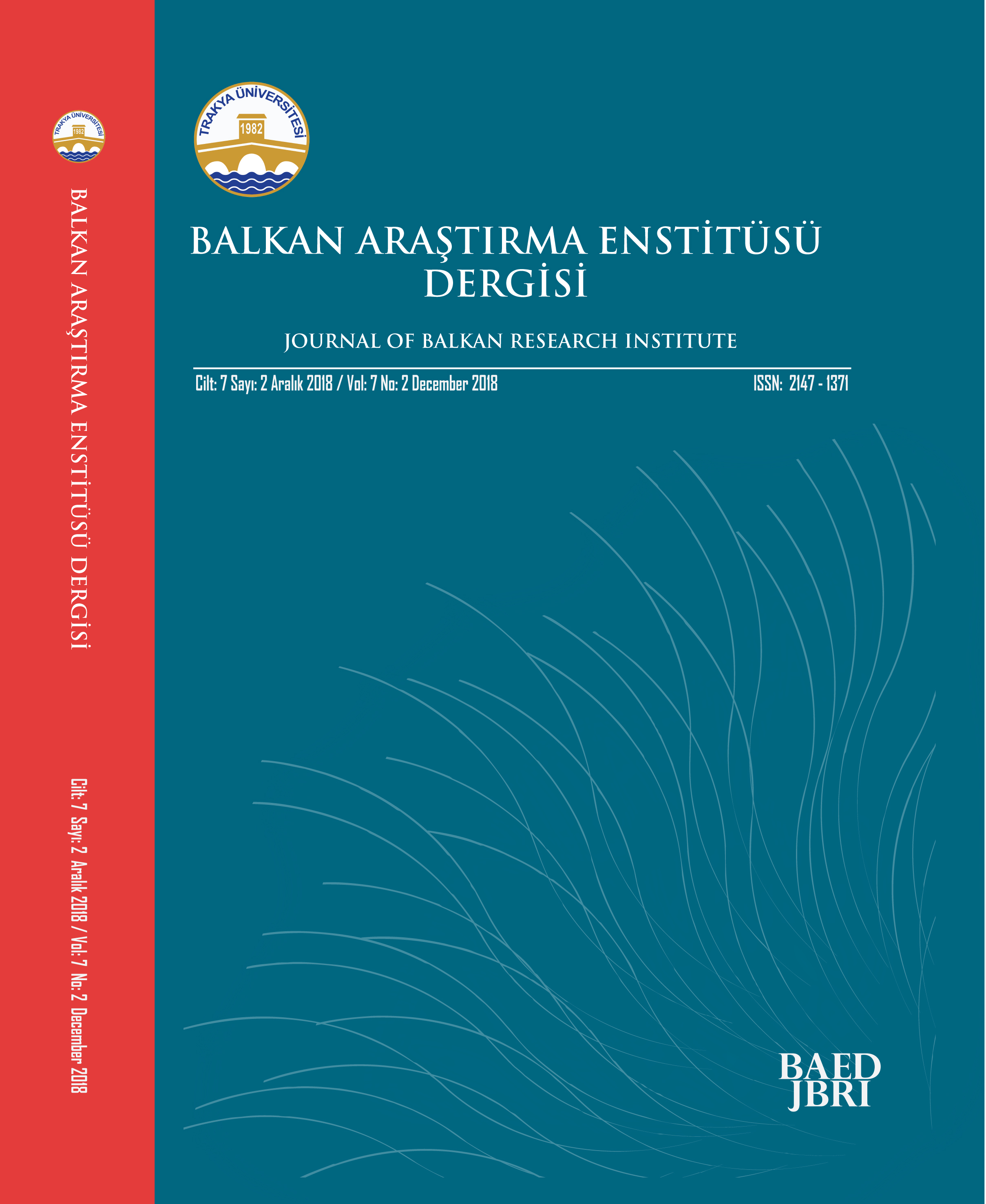THE CLASH BETWEEN LATIN AND ARABIC ALPHABETS AMONG THE TURKISH COMMUNITY IN BULGARIA IN THE INTERWAR PERIOD
THE CLASH BETWEEN LATIN AND ARABIC ALPHABETS AMONG THE TURKISH COMMUNITY IN BULGARIA IN THE INTERWAR PERIOD
Author(s): Giustina SelvelliSubject(s): Interwar Period (1920 - 1939), Turkic languages
Published by: Trakya Üniversitesi Balkan Araştırma Enstitüsü
Keywords: Turkish Latin Alphabet; Turks of Bulgaria; Turkish Literacy in Bulgaria; Turkish Newspapers in Bulgaria; Arabic Alphabet;
Summary/Abstract: In this article, I will address the topic of the Turkish minority in Bulgaria in the interwar period through the interpretive lens of the “linguistic” or better “alphabetic” rights,1 placed in the context of the “Latinization” processes taking place in the wide Eurasian space, as well of the post-imperial sociopolitical dynamics.2To this aim, I describe the interesting and little known case of the writing practices of the Turkish community in Bulgaria in the period between the two world wars. In particular, I take into account the repercussions of Atatürk’s alphabetical reform in Bulgaria, demonstrating how the adoption of the Latin alphabet in Turkey represented a significant challenge for the country, triggering the fears of both the Bulgarian authorities and of the more conservative factions of the local Turkish community. In this context, I analyze the attitudes towards the Arabic and the Latin alphabet employed to write the Turkish language in the Balkan country, illustrating the reasons for the prohibition of the Turkish Latin alphabet, in an unprecedented combination of interests between Bulgarian authorities and Islamic religious leaders. I will try to show how in that specific historical moment, writing systems, far from being “neutral” communication elements, lent themselves to various manipulations of an ideological and political nature.My paper does not intend to represent a comprehensive contribution to the analysis of the complex subject of this community’s religious or political identity, but it rather aims to shed light on the limitations faced by the Turks of Bulgaria in terms of their linguistic rights in a period when other communities in Southeast Europe were encountering similar difficulties
Journal: Balkan Araştırma Enstitüsü Dergisi -Trakya Üniversitesi
- Issue Year: 7/2018
- Issue No: 2
- Page Range: 367-390
- Page Count: 24
- Language: English

